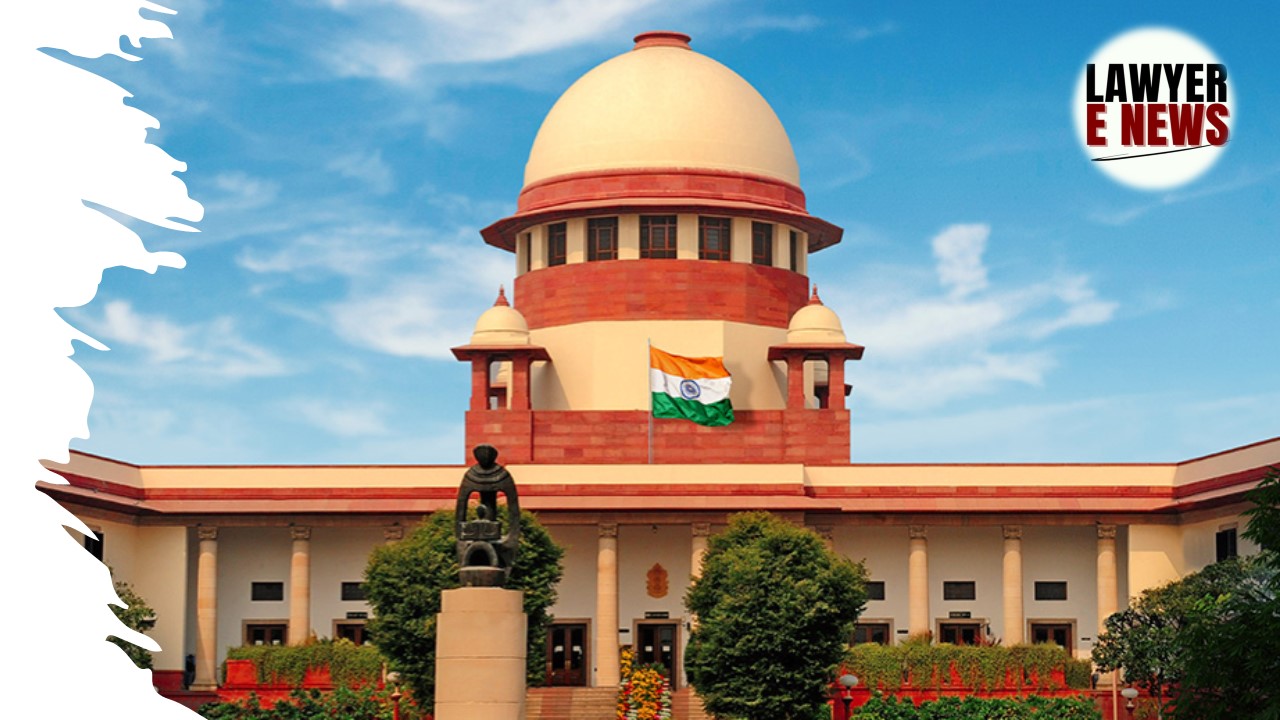-
by sayum
14 February 2026 2:22 PM



Supreme Court quashing criminal proceedings against the appellant, who was accused under Sections 353 and 186 of the Indian Penal Code (IPC). The Court ruled that procedural safeguards under Section 195(1)(a) of the Code of Criminal Procedure (CrPC) were not complied with, rendering the proceedings invalid.
The Court held that cognizance of the offence under Section 186 IPC was taken illegally, as it lacked the mandatory written complaint from a public servant. Further, the FIR and case materials failed to disclose any prima facie evidence of assault or criminal force, which are essential elements of Section 353 IPC. The ruling underscores the importance of adhering to statutory safeguards while prosecuting cases involving public servants.
The appellant, B.N. John, managed a hostel for underprivileged children under the NGO Sampoorna Development India. On June 3, 2015, government officials raided the hostel, alleging violations of the Juvenile Justice Act. The appellant was accused of obstructing officials during the raid, and an FIR was registered against him under Section 353 IPC. Later, Section 186 IPC was added, citing obstruction of public servants in their official duties.
The Chief Judicial Magistrate (CJM), Varanasi, took cognizance of the offences based on a chargesheet, despite the appellant’s contention that no valid written complaint was filed as required under Section 195 CrPC. The appellant approached the Allahabad High Court to quash the proceedings, but his plea was rejected. Aggrieved, he moved the Supreme Court.
Legal Issues
1. Compliance with Section 195(1)(a) CrPC for Section 186 IPC
Section 195(1)(a) CrPC bars courts from taking cognizance of offences under Sections 172-188 IPC unless there is a written complaint by the concerned public servant. The appellant argued that no such complaint was filed with the Magistrate.
2. Ingredients of Section 353 IPC
The appellant contended that the FIR did not disclose any use of "criminal force" or "assault," both of which are necessary for invoking Section 353 IPC. Mere obstruction, he argued, could only constitute an offence under Section 186 IPC, which is non-cognizable.
3. Validity of Complaint Addressed to Executive Magistrate
The complaint in question was addressed to the City Magistrate, an Executive Magistrate, instead of a Judicial Magistrate, raising questions about its validity under Section 195 CrPC.
Violation of Section 195(1)(a) CrPC
The Court held that Section 195 CrPC requires a written complaint by a public servant for initiating proceedings under Section 186 IPC. In this case, the District Probation Officer had addressed a complaint to the City Magistrate, not a Judicial Magistrate. The Court clarified that only complaints filed with a Judicial Magistrate meet the requirements of Section 195 CrPC.
The Court emphasized:
“A written complaint by a public servant before the court is a sine qua non for cognizance of offences under Section 186 IPC. The absence of such a complaint vitiates the proceedings.”
No Prima Facie Case Under Section 353 IPC
Section 353 IPC criminalizes the use of "assault" or "criminal force" to deter a public servant from discharging official duties. The Court observed that:
• The FIR and accompanying complaint alleged "obstruction" but made no mention of "criminal force" or "assault."
• Later witness statements recorded under Section 161 CrPC inconsistently alleged an "attack," which was not mentioned in the original FIR.
The Court held:
“Mere obstruction does not amount to criminal force or assault under Section 353 IPC. The absence of these elements in the FIR renders the charges legally untenable.”
Invalid Complaint Addressed to Executive Magistrate
The Court noted that the written complaint by the District Probation Officer was addressed to the City Magistrate, an Executive Magistrate, and not a Judicial Magistrate. The Court reiterated the distinction between Judicial and Executive Magistrates, citing Gulam Abbas v. State of U.P. (1982) 1 SCC 71, which clarified that Judicial Magistrates exercise judicial functions, whereas Executive Magistrates perform administrative roles.
The Court ruled:
“A complaint addressed to an Executive Magistrate cannot satisfy the statutory requirement under Section 195 CrPC. Cognizance taken based on such a complaint is invalid.”
The Court found that the procedural lapses in this case went to the root of the matter. Cognizance of Section 186 IPC without a valid written complaint violated Section 195 CrPC. Further, the FIR failed to establish the essential ingredients of an offence under Section 353 IPC. The Court criticized the attempt to transform a non-cognizable offence under Section 186 IPC into a cognizable one under Section 353 IPC to bypass statutory safeguards.
The Court also dismissed the reliance on witness statements recorded during the investigation, noting that these statements appeared to be afterthoughts and were inconsistent with the FIR. It reiterated that criminal proceedings cannot be sustained if the foundational process is legally defective.
The Supreme Court allowed the appeal and quashed all proceedings in Case No. 9790 of 2015 under Sections 353 and 186 IPC pending before the CJM, Varanasi. The impugned order of the Allahabad High Court was set aside.
The Court concluded:
“Non-compliance with procedural safeguards under Section 195 CrPC renders the cognizance and subsequent proceedings unsustainable in law. Similarly, the absence of prima facie ingredients of assault or criminal force under Section 353 IPC warrants quashing of the FIR and consequent actions.”
This judgment reaffirms the importance of adhering to procedural safeguards under Section 195 CrPC and emphasizes the need for prima facie evidence to sustain criminal charges. It serves as a reminder that criminal law cannot be weaponized to bypass statutory protections or to pursue vexatious litigation.
Date of Decision: January 2, 2025
